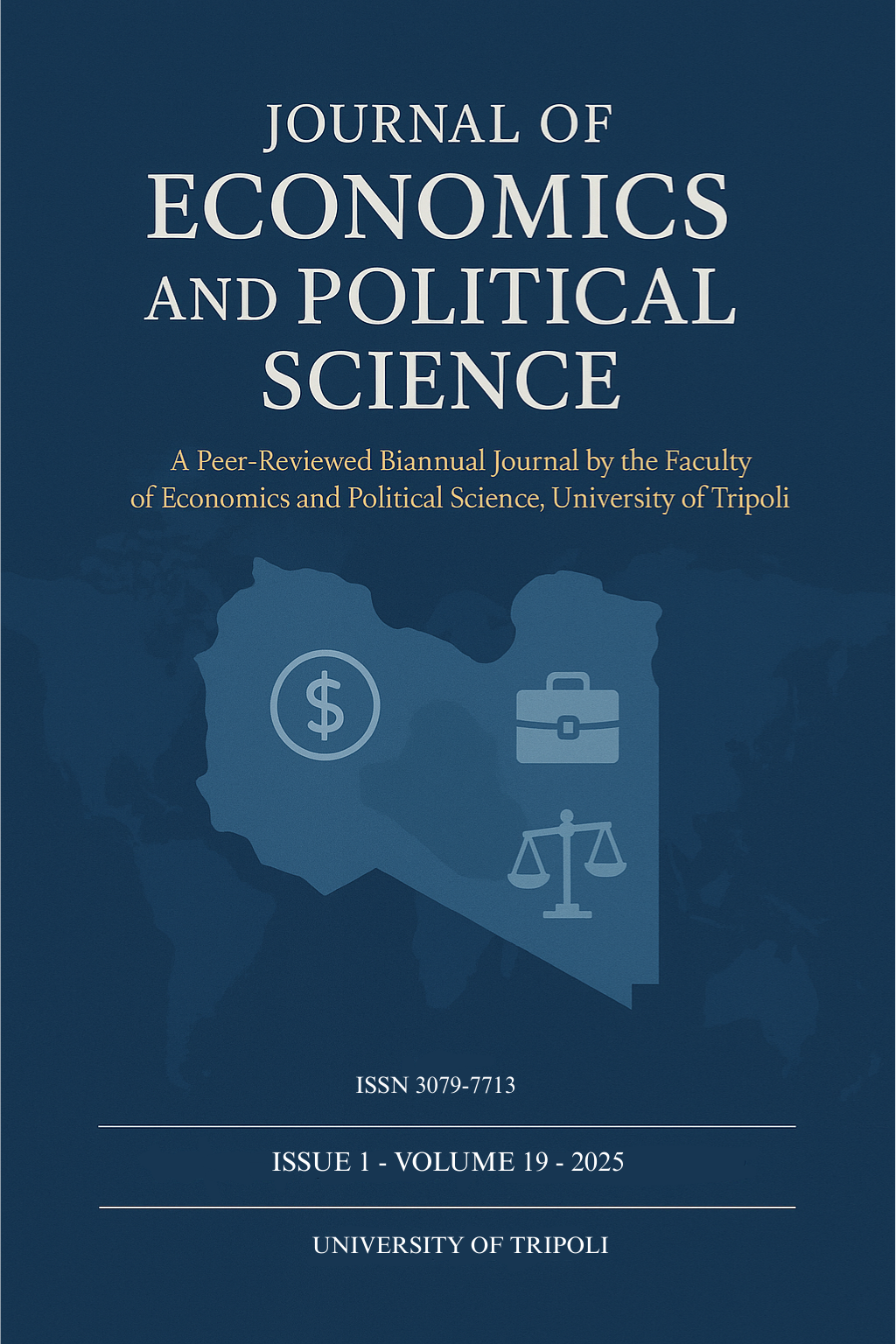the Geographical location and diversification of sources of income in the Libyan economy
Keywords:
landlocked economies, free zones, macro variablesAbstract
This research aims to study Libya's geographical location and explore its potential role in diversifying national income sources. It adopts a descriptive-analytical approach, with four main axes. The first addresses the concept of economic diversification and its indicators, while the second focuses on analyzing the economic indicators of the landlocked African countries neighboring Libya. The third axis explores the potential offered by Libya's geographical location in supporting Libyan economic diversification.
The research concludes with several findings, most notably that Libya's geographical location is one of the most important strategic advantages that can be leveraged to diversify income sources by establishing and activating free economic zones along the northern coast and in the southern border regions. However, the actual performance of these zones remains limited, primarily due to weak infrastructure, including a dilapidated road network, a low-efficiency banking system, and weak communications networks.
Based on this, the research recommends giving top priority to developing infrastructure projects and accelerating the establishment of free zones, thus enabling optimal use of Libya's strategic geographical location to support economic diversification in Libya.

Downloads
Published
How to Cite
Issue
Section
License
Copyright (c) 2025 Journal of Economics and Political Sciences

This work is licensed under a Creative Commons Attribution 4.0 International License.
- The researcher must submit a commitment (according to the provided form) confirming that the scientific work submitted for publication in the journal has not been previously published in any form, is not under consideration for publication by any other entity, and is not a summary of any previously published work.
- All scientific work submitted for publication in the journal will be subjected to an approved software program to detect any violations of intellectual property laws (plagiarism) to ensure its academic integrity.
- In case of any violations of intellectual property laws, the scientific work will be permanently rejected for publication in the journal.
- The scientific work must be submitted in three printed copies (A4 size), along with one copy on a CD in Word format under the Windows operating system.
- The editorial board has the right to perform an initial review of the submitted scientific work to assess its suitability for peer review or to reject it.
- The editorial board has the right to request any documents deemed necessary to complete the initial review or peer review process, such as but not limited to: (statistical data analysis forms, questionnaires filled by respondents, reports, etc.).
- The researcher must complete the journal’s submission form, which includes necessary contact information.
- The period for submitting scientific work by researchers is as stated in the announcement for accepting submissions for publication in the journal.
- Submissions for publication can be delivered in person or via the journal's email.
- Priority will be given to applied scientific work (practical research), especially work that addresses current issues relevant to Libya.
- The arrangement of scientific works for publication in the journal will depend on technical considerations determined by the editorial board.
- The views expressed in the scientific work are those of the authors only and do not necessarily represent the views of the journal.
Accepted 2025-05-24
Published 2025-05-27











